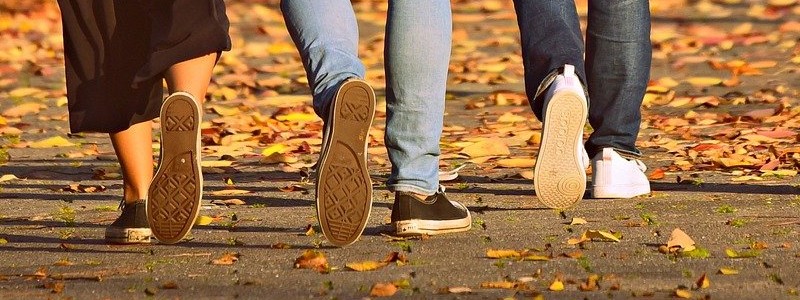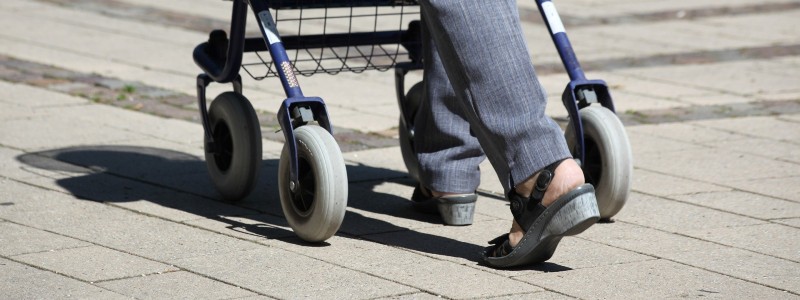Can I Sue the HOA for My Slip and Fall?
We understand you may go a little stir crazy during the pandemic. Going for a nice walk around the neighborhood is generally safe — as long as you remember to socially distance from others. But what would you do if you were injured on an uneven sidewalk? Would you be able to sue the HOA […]

November 20, 2020

We understand you may go a little stir crazy during the pandemic. Going for a nice walk around the neighborhood is generally safe — as long as you remember to socially distance from others. But what would you do if you were injured on an uneven sidewalk? Would you be able to sue the HOA for negligence?
If you are injured in a trip and fall accident, you should first seek medical attention for your injuries. Afterwards, you can start thinking about the lawsuit. You may be able to sue the homeowner or Homeowners Association Board (HOA), but it will be tricky. Partnering with an Indiana personal injury attorney is your best hope of recovering damages in your fall case.
HOA Lawsuits are Complicated
Suing the HOA can be an incredibly complicated matter. The HOA is not immune from legal action, but they may have contracts with various maintenance and government-run agencies that can make legal action complicated.
Your first step is to familiarize yourself with your neighborhood’s bylaws, declaration of covenants, conditions, and restrictions (or CC&Rs). These governing documents outline the HOA’s duties for maintaining common areas.
Common areas may include walkways, the neighborhood clubhouse or gym, dog park, and so forth. The HOA is usually responsible for maintaining and repairing common areas, either by themselves or by hiring an outside maintenance company.
The HOA may not always have the authority to do necessary repairs. For example, the board may require a unanimous vote but is unable to convene, so repairs will have to wait. And sidewalks within the neighborhood may be the responsibility of the city government rather than the HOA. There are multiple forces at work here and your attorney will help explain the situation to you.

You May be Able to Sue the HOA for Breach of Contract
The HOA must perform its duties in a diligent and good faith manner. It must follow the rules set forth in the CC&Rs, just like everybody else. This legal duty is similar to the reasonable care that businesses owners must take to ensure their property is safe for visitors.
Let’s say that you tripped over the uneven walkway leading into the clubhouse and broke your hip. If the HOA is in charge of maintaining that walkway but has put off repairing the uneven pavement, or has mismanaged the funds needed to pay for repairs, then you may be able to sue them for damages.
Building a Lawsuit Against the Homeowners Association
Premises liability is a legal concept where an unsafe or defective condition, which is known by the property owner, injures someone on the owner’s property.
The burden of proof in a premises liability claim lies with the plaintiff. For a successful premises liability, you must prove negligence. It’s not enough that the tripping hazard exists. You must also prove the HOA was negligent by not maintaining common areas as is their duty.
Proving negligence can be difficult for many reasons.
First of all, you need to understand a little bit about comparative negligence. In personal injury law where one party is harmed by another’s negligence, comparative negligence means each party’s contribution to the incident will determine how much the injured party can recover.
One party might not be 100 percent at fault for the accident. The injured party may have contributed to their injury through some negligence of their own. If the injured person is over 51 per cent at fault, they will be unable to recover damages.
This means you must be below 51 percent per fault in order to successfully sue the homeowner or HOA. In order to do that, you must be able to prove that either the homeowner or HOA was negligent and mostly to blame for your injury.
The HOA will definitely try to protect their own interests. They may argue that your own negligence is entirely to blame for the accident, so you don’t deserve compensation.
For example, they may say that you were on your phone and not paying attention to the sidewalk in front of you. Or if you were not using a walking aid as prescribed by your doctor, the HOA could say they shouldn’t have to accept the full blame for your fall.

Evidence is Crucial
Secondly, you will need evidence to build your case. That includes copies of the neighborhood bylaws, footage from street cameras, witness statements, and medical records. You will also need evidence showing the HOA knew about the dangerous walkway, but did nothing to repair it.
Getting that kind of evidence on your own may be difficult, especially if you are recovering from an injured leg. That is where a personal injury attorney can help. They have experience getting evidence in injury cases, and will be able to assist you.
Help from a Personal Injury Attorney
Homeowners and the HOA have a responsibility to make the neighborhood a safe place for everyone. If they knew about the uneven sidewalk and didn’t do anything about it, they could certainly be partially at fault for your accident.
Many people try to handle their personal injury cases on their own. But it can be incredibly difficult to prove fault if you aren’t sure where to begin. And did you know the HOA and the homeowner may both be at fault if you were injured on someone’s property? A personal injury attorney knows how to handle fall cases involving multiple parties.
At the end of the day, dealing with injuries from tripping and falling on an uneven sidewalk will only be harder while juggling a lawsuit with the HOA. Please feel free to reach out to us at Hensley Legal Group, either by phone or online, and tell us about your case. We will do what we can to get the best outcome possible for you.